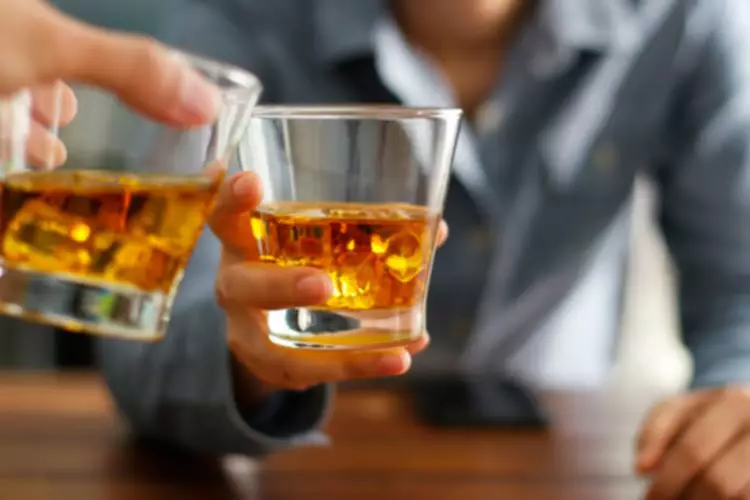How To Help Someone Get Sober: 10 Support Strategies
Temmuz 21, 2022
“Given that relapse is a process, it can be identified and interpreted before use happens,” she says. Expressing your emotions might seem tough or impossible, which can lead to further frustration. Symptoms can also seem to resemble a late withdrawal, as some treatment professionals have pointed out. It often occurs as part of a broader condition known as post-acute withdrawal syndrome (PAWS).
How Does Alcohol Affect Your Behavior?
But, it’s actually key to balancing out alcohol intake in the long run. Drinking less alcohol can lead to an improved physical and mental state and cut back your chances of having such instances occur in the future. Finding ways to cut back on alcohol can be difficult, but with patience and dedication to self-care, it is possible to find more manageable solutions.
How can I build healthier drinking habits?
Furthermore, alcohol can impact a person’s memory and cognitive function. When drunk, individuals may have difficulty remembering events or processing information. In contrast, a sober person is more likely to have a sharper memory and be able to think critically about different situations. Drunk and sober are two states of being that are polar opposites in terms of mental clarity and physical coordination. When someone is drunk, their inhibitions are lowered, and their decision-making abilities are impaired.
- Set limits on your alcohol consumption, stay hydrated, eat before drinking, avoid binge drinking, and understand your tolerance level to make safer decisions about drinking.
- For example, heroin addicts suffer different consequences, while those addicted to alcohol experience different repercussions.
- By addressing the patterns that contribute to your addiction, you lay a solid foundation for a sustained recovery.
Recovery and Long-Term Sober Living:
People may not understand how to cut back on drinking or may not recognize when it’s time to cut down. It is important to know how and why reducing alcohol consumption is beneficial for your overall physical and mental health. Whether it’s beer, wine, or shots, one thing’s for sure—being drunk can definitely make a person loose-lipped. We’ll take a closer look at this common myth and get to the truth of the matter, and we’ll also cover how alcohol affects your brain and impacts your life. We’ll even look at some healthy replacements for alcohol, so you can put your best foot forward in your day-to-day life. Excessive drinking can lead to severe health issues, both in the short term and long term.

Dove Recovery: Personalized, Compassionate Care for Substance Use Disorders
- These activities not only improve your physical health but also boost your mood and serve as constructive outlets for stress and boredom.
- “Given that relapse is a process, it can be identified and interpreted before use happens,” she says.
- The stages of being drunk range from sobriety to potential death, with each stage characterized by specific emotional and physical symptoms.
- It often occurs as part of a broader condition known as post-acute withdrawal syndrome (PAWS).
- Long-term excessive drinking can lead to chronic health problems such as liver disease, cardiovascular issues, and mental health disorders.
Reach out today drunk feelings vs sober feelings and learn how we can support you and your loved ones on the path to lifelong sobriety. Setting healthy boundaries is tough, especially when you love someone suffering from substance use disorder. However, this focus on the negative can have counterintuitive effects, as shame is a big trigger for relapse. When helping someone get sober from alcohol, try to keep the focus on the future instead of the past. Therapy is a great tool to help someone with substance use disorder unpack their shame in a healthy way.
- But although under the influence you may well act differently, that in itself doesn’t mean that drinking reveals—or can reveal—who you actually are.
- If you want to help someone you love get sober, there is action that you can take.
- If you’re a recovering alcoholic, the first step to recovery is realizing the extent of the problem.
- For some, the term emotional sobriety might bring images of a ‘happy’ individual, healthily coping and well-adjusted to sobriety.
Behavioral symptoms

It’s an attempt to replicate the adrenaline rush formerly provided by drinking. You might want to participate in treatment with your loved one whenever possible, but it’s also wise to talk to a therapist on your own. This is especially the case if specific behaviors or mood symptoms affect your day-to-day life. Maybe they slipped up and had a drink after several months of sobriety. While the phrase “dry drunk” is controversial, the set of symptoms it refers to are a normal part of recovery for plenty of people and nothing to be ashamed about.

What Is a Dry Drunk? Understanding Recovery Beyond Abstinence?
No one wants to deal with challenges, especially ones that bring up negative or overwhelming emotions. Yet working through those, even small ones, allows the individual to put a ‘win’ on the board and brings them one step closer to emotional maturity and control. Unquestionably, then, alcohol can change how you think, feel, and behave. Or, perhaps more accurately, it can allow you to expand your communicative freedoms by overriding your typically self-protective defense mechanisms. And, not surprisingly, in the moment, that can make you feel happy, even euphoric.
